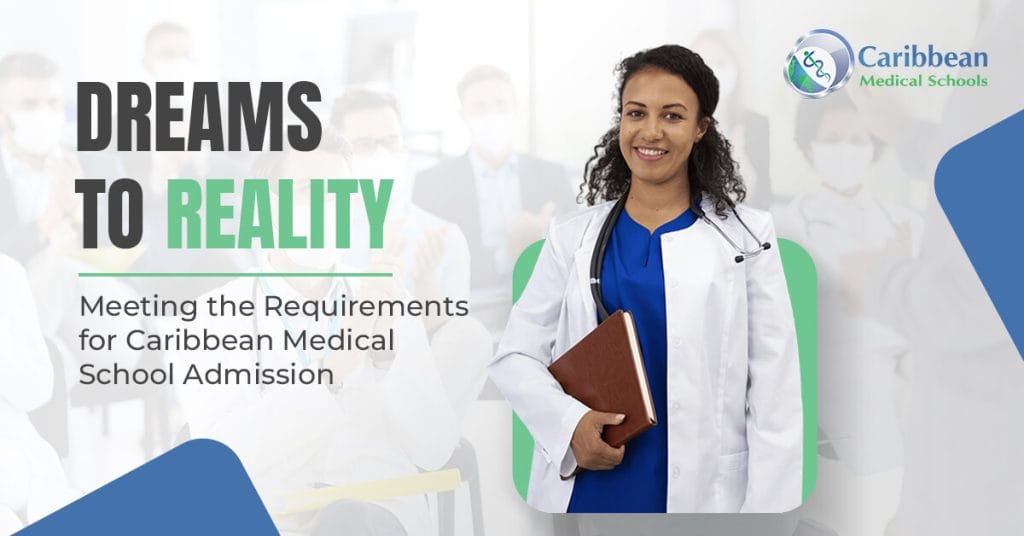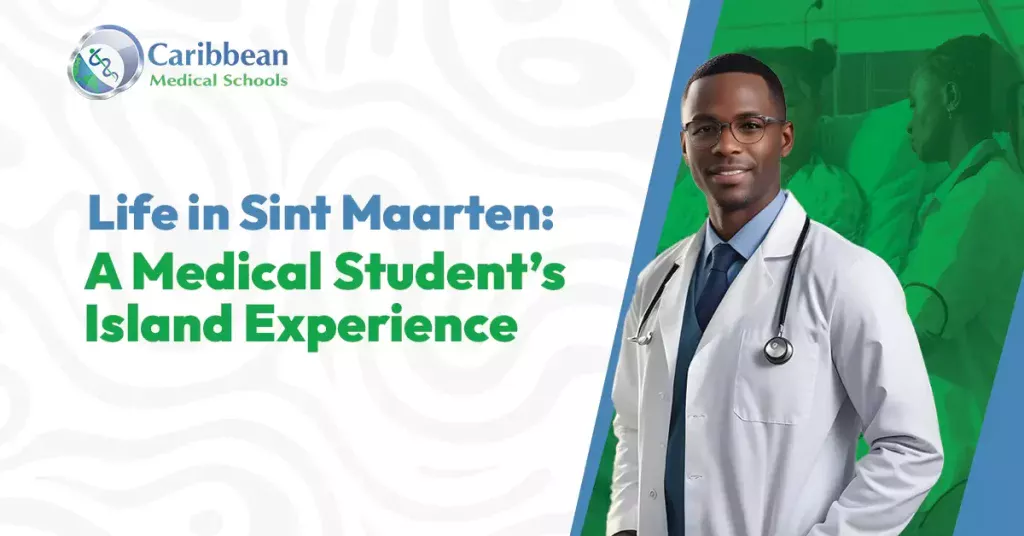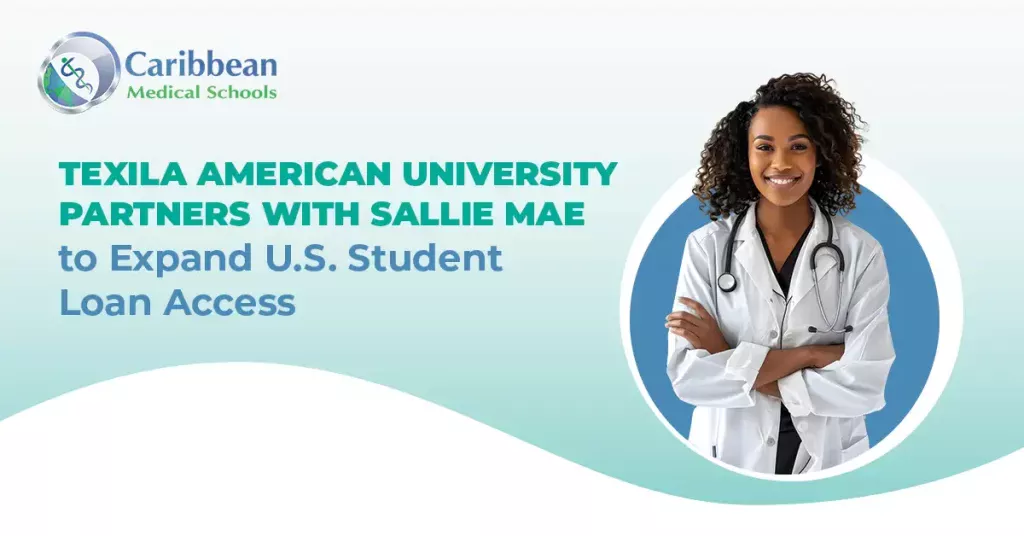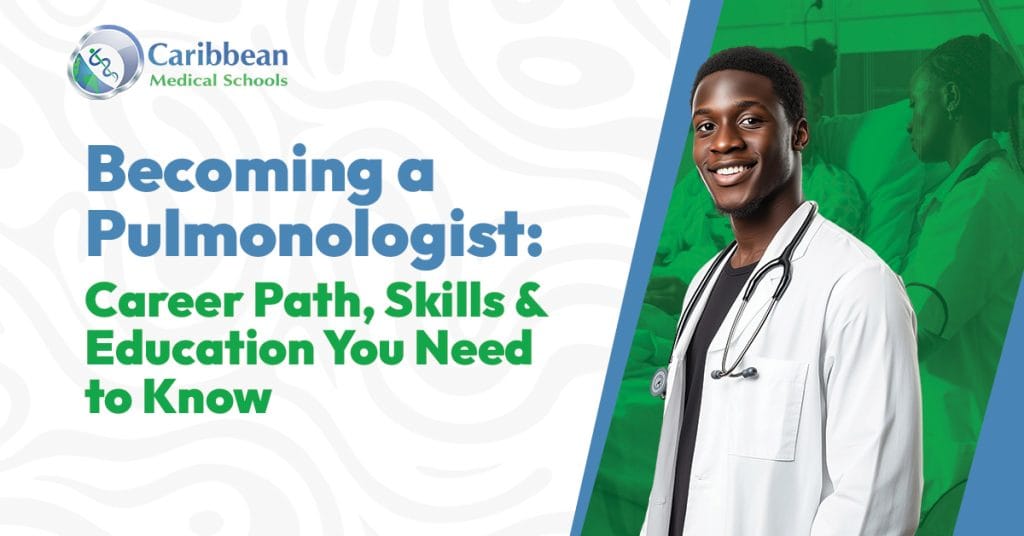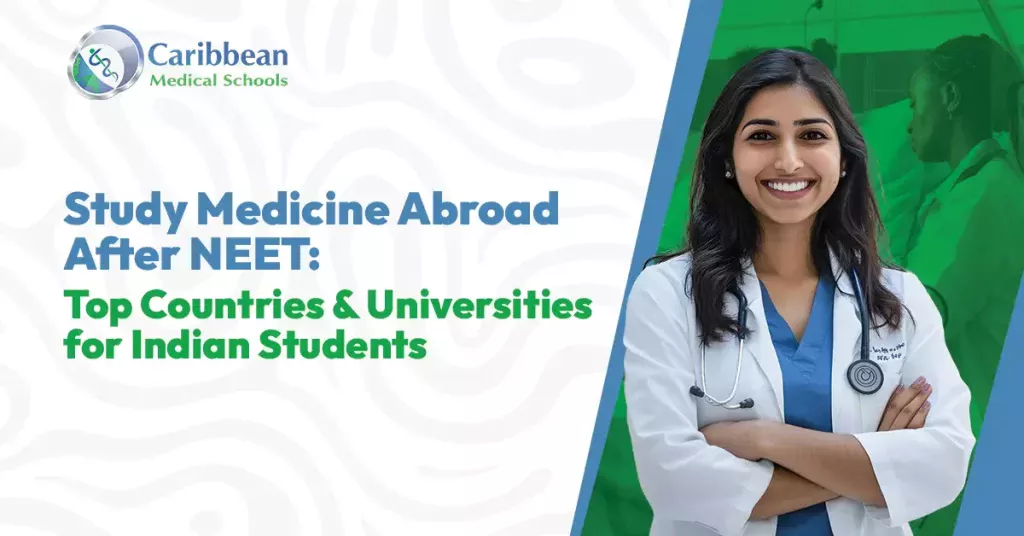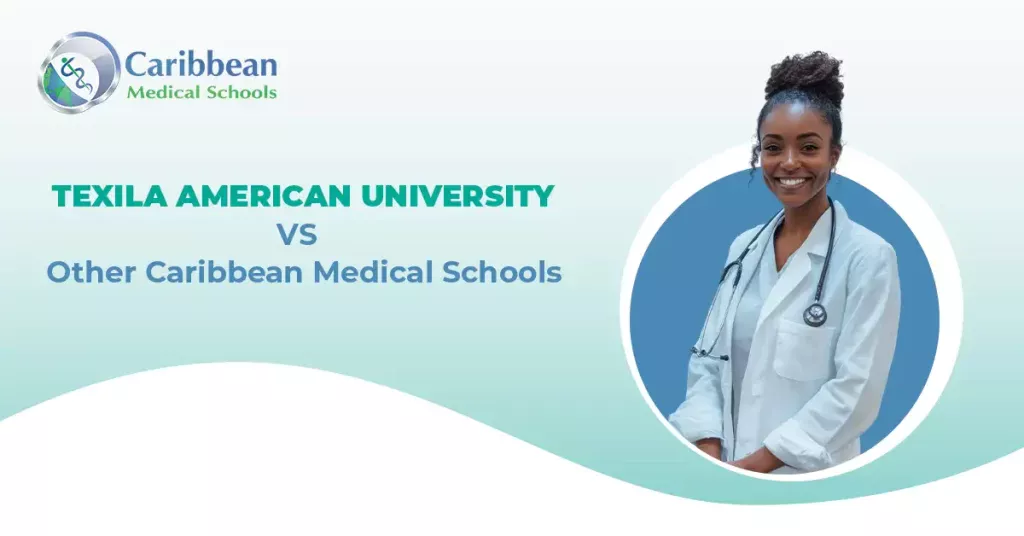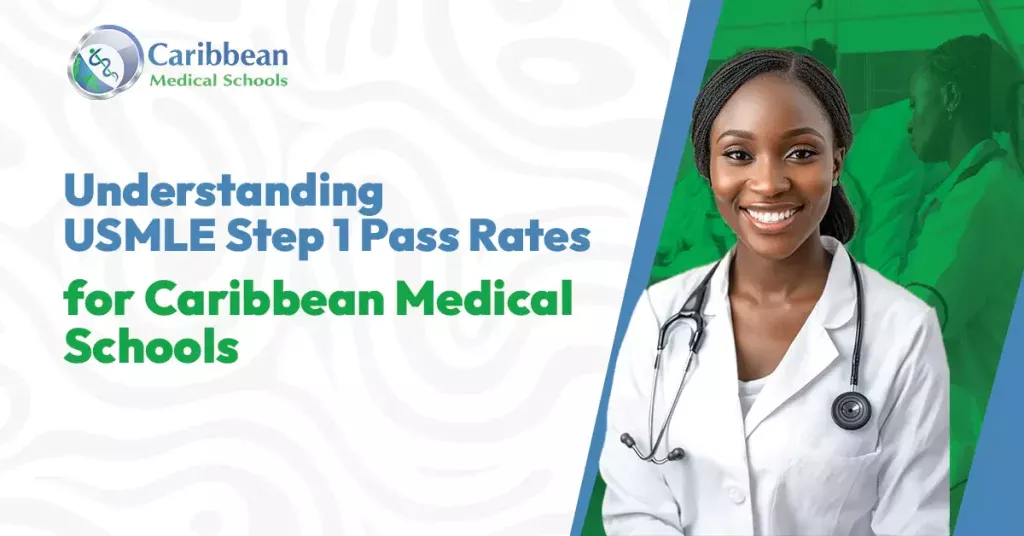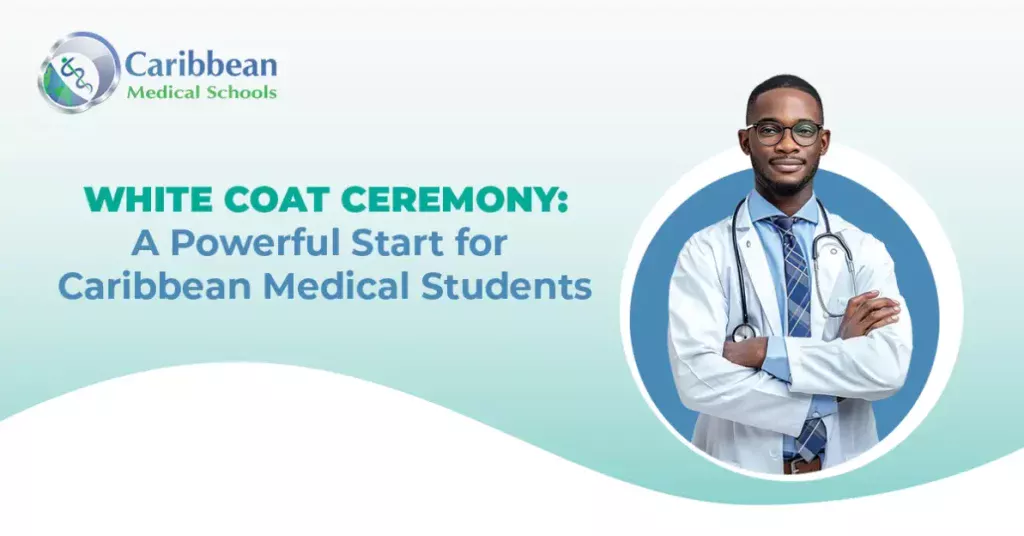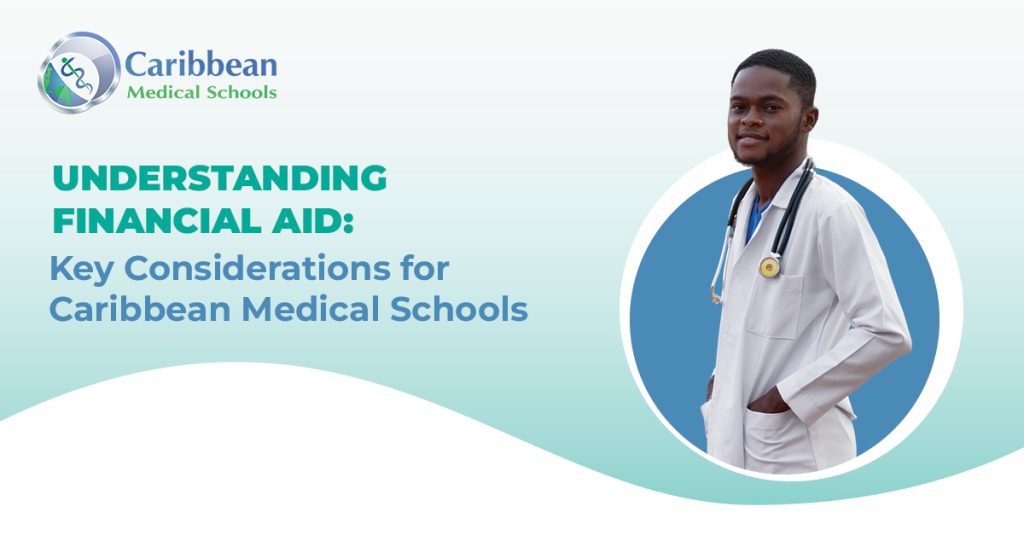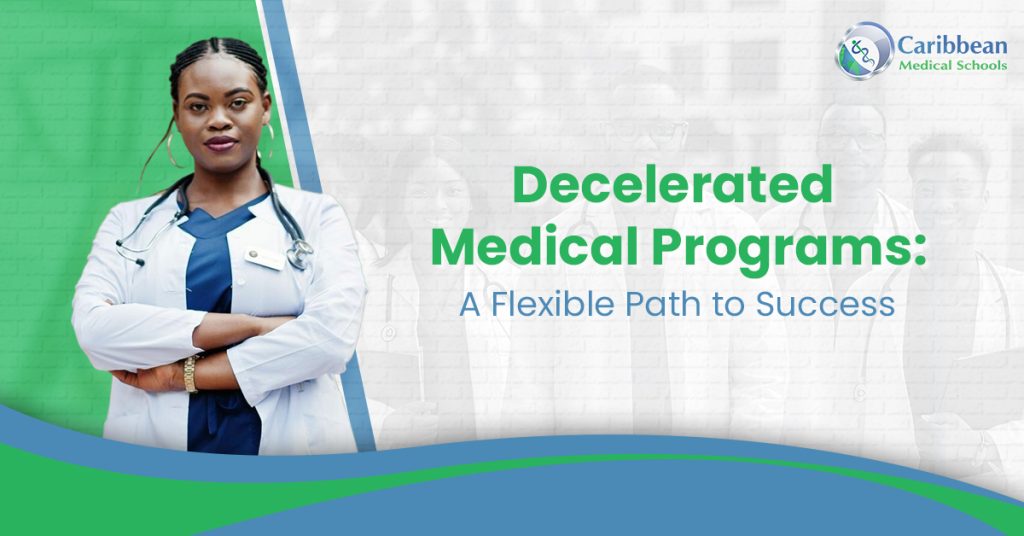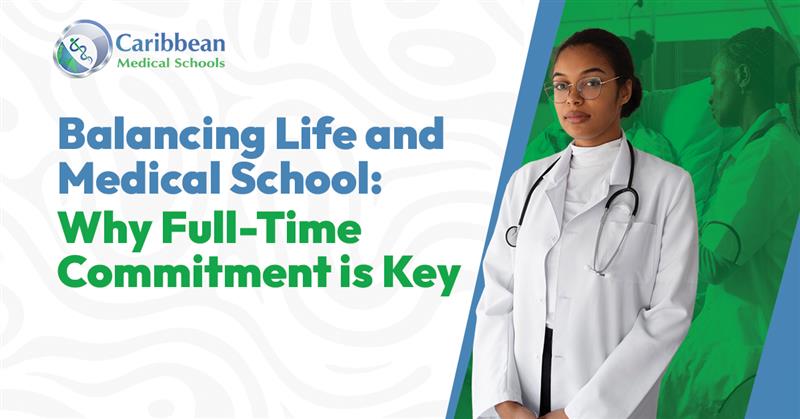Blog Summary
Meeting Caribbean medical school admission requirements can turn your dreams into reality. This article covers academic prerequisites, standardized exams, application materials, extracurricular activities, interviews, and financial considerations. With careful planning, dedication, and a well-rounded profile, you can successfully navigate the admission process and embark on a rewarding journey toward becoming a healthcare professional.
Entering medical school is a dream for many individuals passionate about pursuing a career in healthcare. Caribbean medical schools offer a unique pathway to make this dream a reality. However, meeting the admission requirements is crucial to secure a seat in these esteemed institutions. This article will explore the essential requirements for Caribbean medical school admission and guide for aspiring students.
Importance of Caribbean Medical School Admission
Caribbean medical schools have gained recognition for their high-quality education, diverse learning environments, and opportunities for international exposure. Many students choose these schools to receive excellent medical training and broaden their horizons in a multicultural setting. However, due to the increasing demand for medical education, the admission process has become competitive, emphasizing the significance of meeting the requirements and Caribbean medical schools that accept transfers.
Academic Requirements
GPA and Transcripts The academic prerequisite for Caribbean medical school admission primarily revolves around the applicant’s Grade Point Average (GPA) and transcripts. Admissions committees evaluate applicants’ academic performance to assess their ability to handle the rigorous curriculum. While specific GPA requirements may vary, maintaining a competitive GPA is crucial to demonstrate academic competence.
Science Coursework and Prerequisites
Caribbean medical schools typically have specific science coursework and prerequisites that applicants must fulfill. These requirements ensure that students possess a strong foundation in core scientific disciplines relevant to medicine. Biology, chemistry, physics, and mathematics are commonly expected subjects. Aspiring students must review and fulfill these prerequisites to meet the academic standards.
Medical College Admission Test (MCAT)
Preparation Tips
The MCAT evaluation is intended to gauge a person’s comprehension and potential for pursuing a profession in the healthcare industry. Adequate preparation is essential to perform well on the MCAT. Aspiring students should develop a study plan, utilize MCAT resources, and consider joining preparatory courses or study groups. Dedication and consistency in studying are vital to achieving a competitive MCAT score.
Score Requirements
Each Caribbean medical universities has its own MCAT score requirements. Applicants should aim for a score that exceeds the minimum requirement to enhance their chances of admission. While a high MCAT score is advantageous, it is essential to remember that admissions committees consider the overall application, including other factors such as GPA and personal statement.
Personal Statement and Application Essays
Writing a Compelling Personal Statement
The personal statement allows applicants to showcase their unique qualities, experiences, and motivations for pursuing a medical career. It should be engaging, well-written, and reflect the applicant’s genuine voice. Sharing personal anecdotes and demonstrating a deep understanding of the medical profession can make the personal statement stand out.
Showcasing Unique Attributes
Caribbean medical schools value diversity and look for applicants with unique attributes that contribute to the medical community. Applicants should highlight their strengths, experiences, and perspectives that set them apart from other candidates. A passion for community service, leadership skills, or cultural competency can significantly enhance an applicant’s profile.
Extracurricular Activities and Volunteer Work
Importance of Well-Rounded Experiences
Caribbean medical schools value applicants with well-rounded profiles. In addition to academic achievements, engagement in extracurricular activities demonstrates an applicant’s ability to manage multiple responsibilities. It showcases their interests and passions outside of the classroom. Participating in clubs, organizations, research projects, and community service activities can significantly strengthen an application.
Making a Difference Through Volunteer Work
Medical Schools in the Caribbean highly regard volunteer work as it showcases an applicant’s commitment to helping others and making a positive impact. Applicants should seek meaningful volunteer opportunities that align with their interests and allow them to contribute to underserved communities or healthcare-related initiatives. Engaging in long-term volunteer commitments can demonstrate dedication and compassion.

Interview Process
Tips for a Successful Interview
The interview is a crucial stage in the admission process where applicants can showcase their interpersonal skills, professionalism, and suitability for the medical field. It is essential to prepare for interviews by practicing common interview questions, researching the school’s mission and values, and conducting mock interviews. Maintaining a confident and composed demeanor during the interview is critical to leaving a positive impression.
Common Interview Questions
Caribbean medical school interviews often include questions that assess an applicant’s motivation, ethical reasoning, problem-solving skills, and ability to work in teams. Familiarizing oneself with common interview questions and preparing thoughtful and concise responses is crucial. Some common questions include “Why do you want to become a doctor?” and “How do you handle stressful situations?“
Financial Considerations
Tuition and Scholarships
Caribbean medical school tuition varies among institutions. Applicants need to consider the financial implications of attending medical school and plan accordingly. Researching scholarships, grants, and financial aid opportunities specific to Caribbean medical schools can help alleviate the financial burden. Some schools offer merit-based scholarships, need-based scholarships, or loan repayment programs.
Exploring Financial Aid Opportunities
Applicants should explore various financial aid resources, such as government programs, private scholarships, and loan options. Completing the Free Application for Federal Student Aid (FAFSA) is of utmost importance as it plays a critical role in establishing your eligibility for federal financial aid. Additionally, contacting the financial aid offices of Caribbean medical schools can provide valuable information and guidance regarding available options.
Preparing for Medical School
Orientation Programs
Upon acceptance into a Caribbean medical school, orientation programs are typically provided to help new students acclimate to the institution and understand the expectations of medical education. Attending these orientation programs is essential to familiarize oneself with the curriculum, campus facilities, and support services. It is also an opportunity to connect with fellow students and faculty.
Adapting to the Rigors of Medical Education
Medical school is a demanding and rigorous journey. Aspiring students need to be prepared for the challenges they will face. It’s crucial to establish good study habits and time management skills to make the transition into medical education as seamless as possible. Additionally, seeking guidance from experienced mentors or upper-level students can be incredibly helpful. Maintaining a healthy work-life balance and prioritizing self-care is crucial for long-term success.
Conclusion
Meeting Caribbean medical school admission requirements requires careful planning, dedication, and a well-rounded profile. By fulfilling the academic prerequisites, preparing for standardized exams, crafting compelling application materials, engaging in meaningful experiences, and navigating the interview process, aspiring students can turn their dreams of attending Caribbean medical schools into a reality. Becoming a healthcare professional requires much effort and hard work, but the result is worth it.

